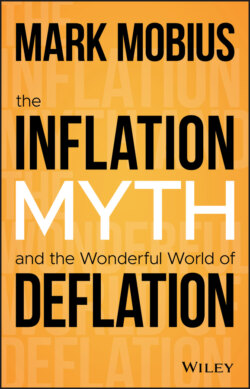Читать книгу The Inflation Myth and the Wonderful World of Deflation - Mark Mobius - Страница 10
1 History and Inflation
ОглавлениеMy interest in inflation was piqued when in 2007 Argentina's director of consumer pricing, Graciela Bevacqua, at the INDEC, the official statistics agency, was fired for not being willing to falsify her agency's inflation statistics to satisfy the government led by President Cristina Fernández de Kirchner. The situation became a global incident when the International Monetary Fund (IMF) gave a report on Argentina to the IMF board which could have resulted in the country being censured and expelled from the IMF. The official Argentine data reported inflation at 10%, while independent data provided by as many as nine private agencies indicated that inflation was actually more than double that at between 25% and 30%. The government's efforts to keep the numbers low and fool the public were in response to rising prices that had resulted in mass protests against the Kirchner government. When IMF Chair Christine Lagarde said that if Argentina did not start producing reliable statistics, she would give the country a “red card,” Kirchner – speaking at the UN General Assembly – said: “Argentina is not a soccer team, it's a sovereign country and accepts no threats or pressures… In the game of comparing football with economics and politics, let me say that the President of FIFA has been far more successful and satisfactory than that of the IMF Executive Board.”1 (Of course, that was before the FIFA Board was found to be engaged in rampant corruption.) In 2007, the Kirchner government not only dismissed Graciela Bevacqua, but also fined her and charged her with embezzlement. Graciela spoke out and claimed that her superiors had asked her to delete decimals from the inflation calculations. The American Statistical Association protested the persecution its colleague was facing in Argentina, but to no avail. Graciela was replaced. More of that case later.
